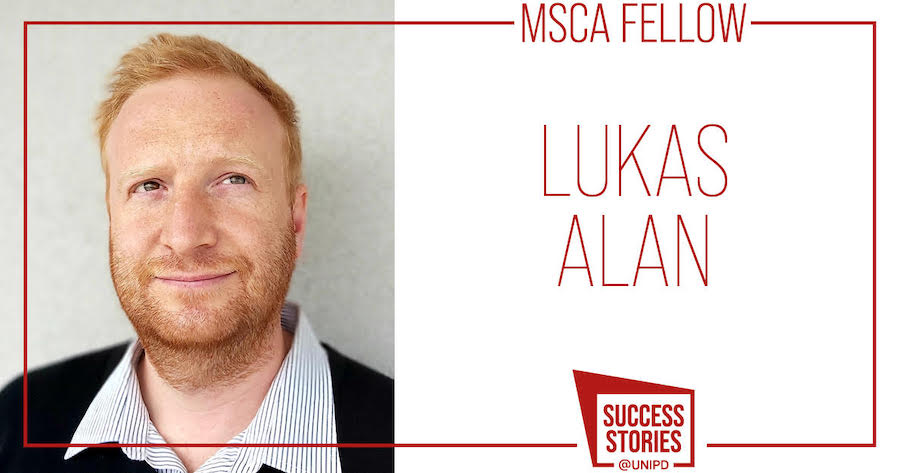
MSCA Fellow: Lukáš Alán
What can a single protein ever tell us about our metabolism? A lot, according to Lukáš Alán, MSCA Fellow at the Department of Biology

Lukáš, mainly interested in cell metabolism and bioenergetics, did his PhD at the Charles University in Prague, Czech Republic; meanwhile, he was working at the Institute of Physiology of the Czech Academy of Sciences on mitochondrial DNA biology. Later, he worked as an associated researcher in the field of the mitochondrial ATP synthase assembly at the same Institute.
Can you tell us in brief what your MSCA IF research project is about?
In my project, Mitobetes, I work on the protein, whose function has been unknown so far. However, there are several indications from the literature and our preliminary data that my protein of interest might be an important player in diabetes, obesity and cardiovascular diseases. The protein is called Von Willebrand Factor A Domain Containing protein 8 (Vwa8) and is localized to mitochondria (powerhouses of the cell) and to peroxisomes (organelles degrading long fatty acids).
What impact do you expect your research project will bring? Who will benefit from your research?
The project will shed more light on the process of fat burning. It seems that Vwa8 protein can help with utilization of redundant fat and improvement of cardiovascular parameters. Hopefully, at the end of the project we will be able to help people struggling with obesity and cardiovascular diseases, which, in the end, might sum up to half of our population.
You applied for a MSCA Individual Fellowship first under the 2017 call, but you did not get funded; you then applied in 2018 again and you obtained the grant: what do you think made the difference, in the second round?
In my second application I properly addressed the concerns of the project evaluators. Feedback on my first proposal showed that they were afraid we would not be able to meet all our goals within two years. Therefore, I took advantage of this extra year to collect more preliminary data and to prepare the necessary models, on which I work now. And of course, we also strengthened the part of the project dealing with intellectual property protection and entrepreneurial mindset, which I had found difficult to answer in the first proposal. I was able to do this thanks to the Seal of Excellence @UNIPD Initiative: my proposal in 2017 received the Seal of Excellence from the European Commission and the University of Padua offered me a fellowship to develop the project. Moreover, the Seal of Excellence @UNIPD also facilitated me to support my family life here.
You obtained your PhD in Prague – Czech Republic and you continued working at the Academy of science of Czech Republic as a postdoc; why did you decide to come to Padua?
I wanted to strengthen my knowledge in the mitochondrial field and especially in mitochondrial dynamics and imaging. And all that is represented by my mentor – Prof. Luca Scorrano, the world leader in this field at the Department of Biology UNIPD. Another reason was the great location of Padua, lying just in between the Dolomite mountains and the Adriatic Sea. Both make Padova the best place to regenerate after work.
How important is it for your research to work with a supervisor and a research group? What are you learning from them and what are they learning from you?
Professor Scorrano’s group is very heterogeneous. Of course, the supervisor is the key leader driving our research. I appreciate that I can meet on a daily basis with specialists from different parts of science like cardiovascular diseases, autophagy, metabolism, cancer, skin biology, eye or lung development. I hope that also my bioenergetics background is appreciated as I try to be helpful to my colleagues in analyzing mitochondrial function from the energetic point of view.
What are your plans for the future, after you complete the MSCA-IF fellowship? Does the IF help you in planning your career?
Definitely. I am planning to come back to Prague after the end of my fellowship. I hope I will establish my own research group in the field of mitochondrial metabolism.
International Research Office
via Martiri della libertà 8, 35137 Padova, Italy
tel. +39 049.827 1947 / 1948 / 1945
fax +39 049.827 1911
international.research@unipd.it


